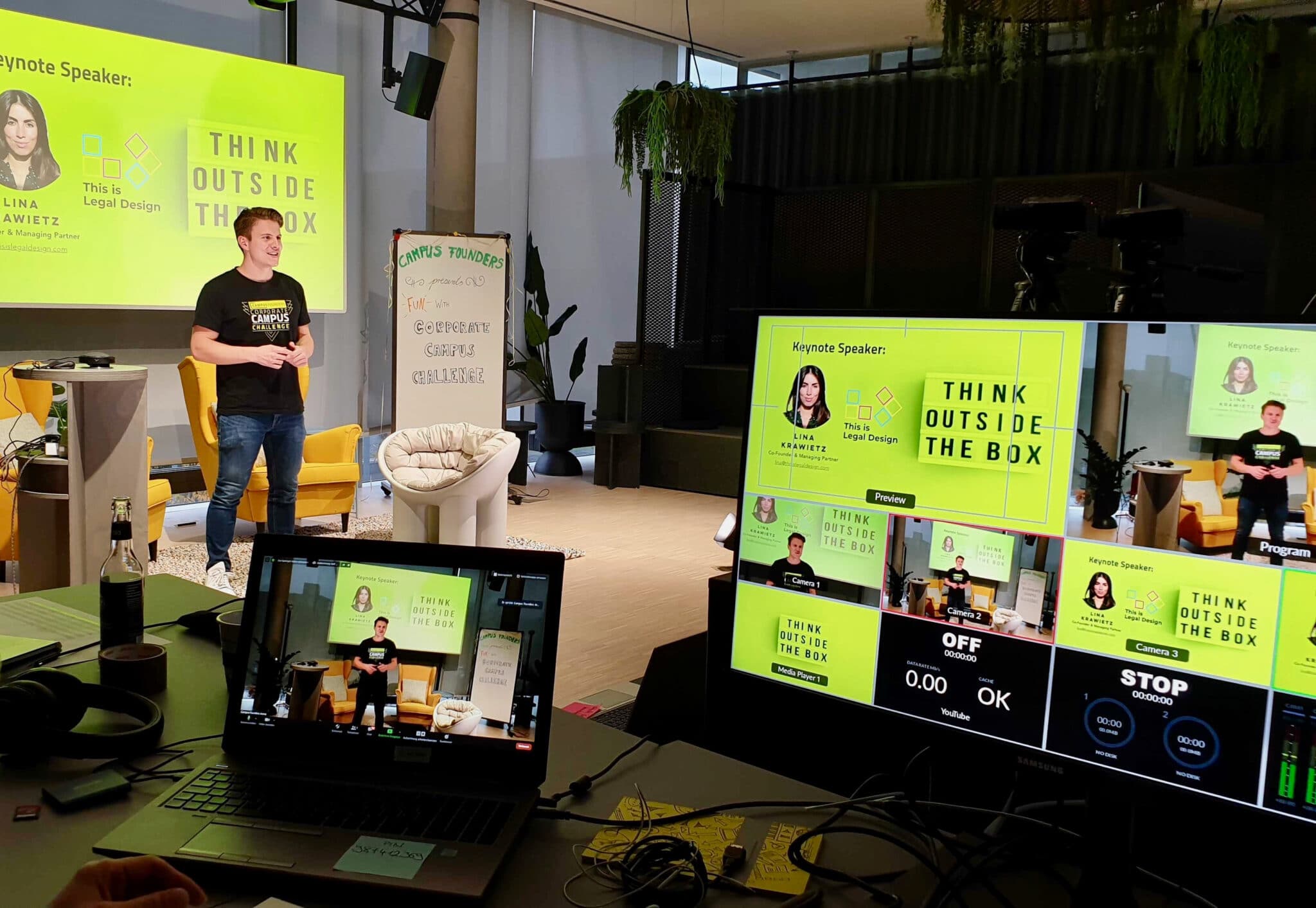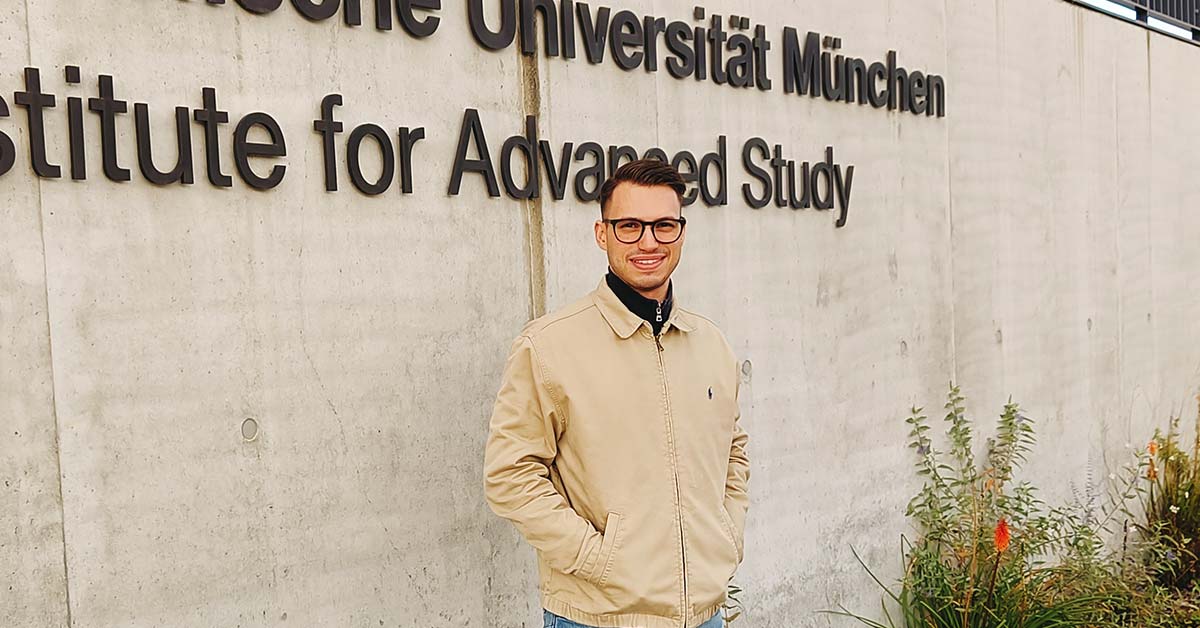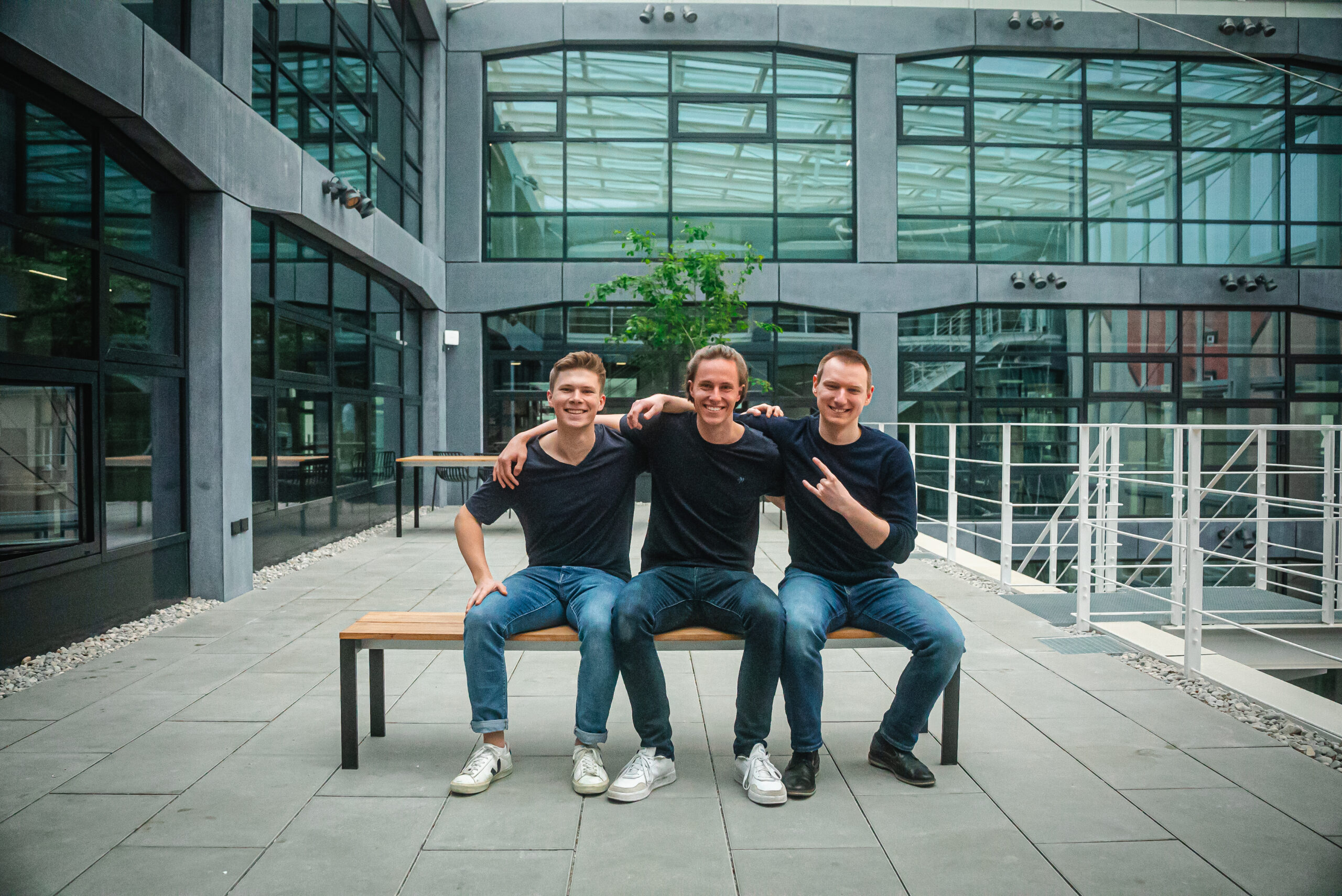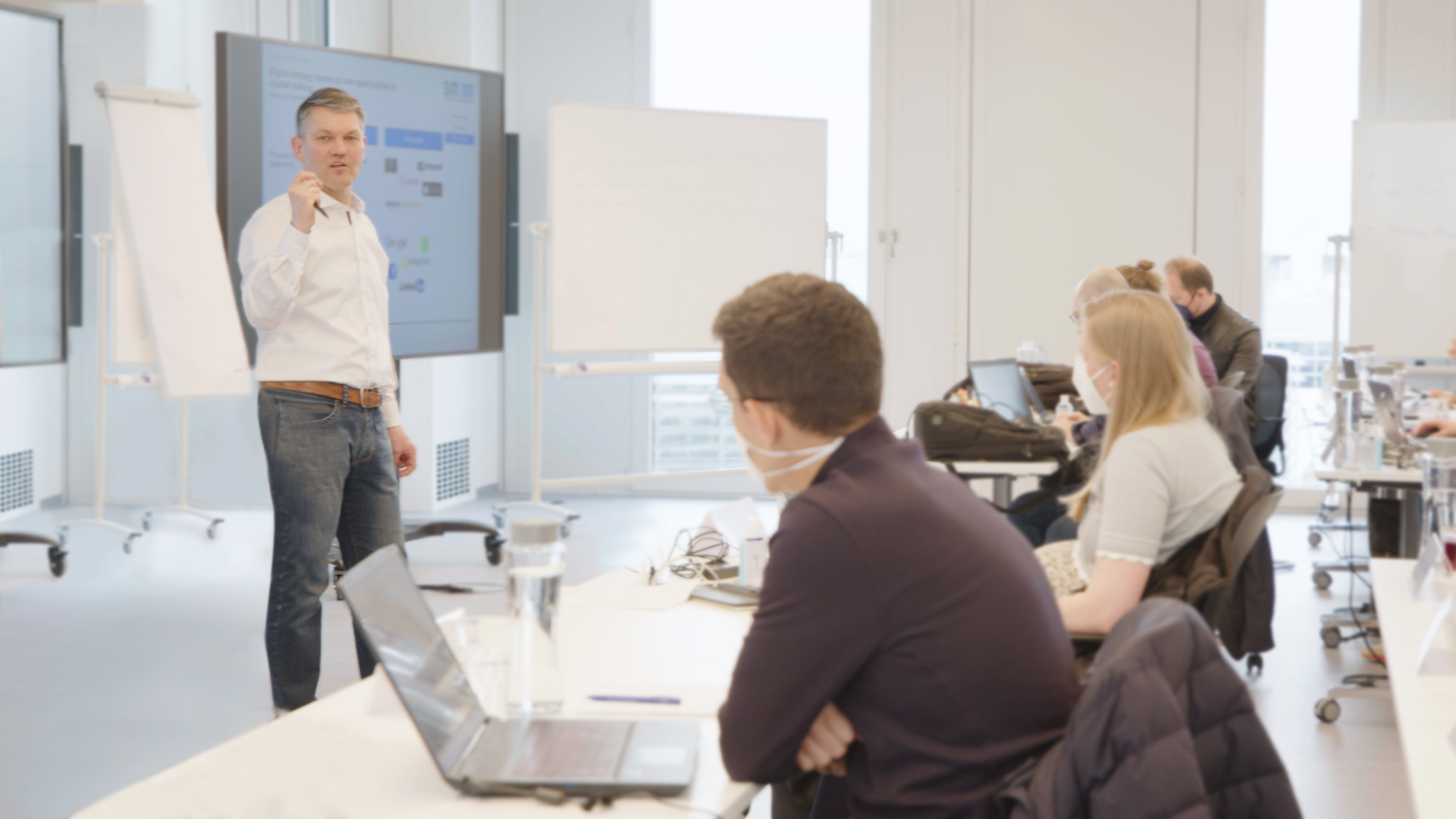Each semester, our students at the TUM Campus Heilbronn get the opportunity to unlock their entrepreneurial potential with the Corporate Campus Challenge by Campus Founders, the entrepreneurship and innovation center in the region of Heilbronn-Franken. The challenge is a unique hands-on learning experience where students learn to solve real problems the way a start-up would. In the course of one semester, teams go from problem understanding to solution design in order to solve a real industry challenge in the most creative way with the goal to identify unmet user needs, create new products or services, and develop a tested functional prototype. As an open co-innovation platform and ecosystem, Campus Founders brings together students and aspiring founders from a great variety of educational, cultural, and professional backgrounds from the various institutions of the Bildungscampus in Heilbronn and beyond. This time, participants had to collaborate exclusively online, a new hurdle, which however did not stop the 15 teams to develop innovative ideas and become friends along the way.
This past semester, the three challenges were provided by the Ferdinand-Steinbeis-Institute, beyerdynamic, and the Zukunftsfonds Heilbronn. The final idea pitches took place recently, with a jury, including for example Anastasia Myasnichenko from UnternehmerTUM, and Prof. Dr. Helmut Krcmar, Founding Dean and Delegate Officer of the President – TUM Campus Heilbronn, awarding the best ideas.

The finals of the Corporate Campus Challenge took place as an online event. // Photo: Campus Founders
Team MEGA: Winner of the Jury Award

Team MEGA’s final idea: An in-ear tip that molds precisely to the user’s unique ear shape.
Eamonn Walsh, Master in Management and Innovation student in Heilbronn, and his team MEGA worked on the challenge provided by beyerdynamic. The well-known manufacturer of audio technology was looking for ideas on how to improve the customer experience with in-ear headphones. As a first step, the team explored the challenge, conducted interviews with customers, and identified a common problem: unfitting in-ear tips that are uncomfortable to wear. “Often, earbuds are generalized into three basic sizes. However, the ear-shape is as unique as a fingerprint, so we wanted to build earbuds that could be customized for each individual user”, explains Sebastian, one of Eamonn’s teammates and Bachelor in Management and Technology student at TUM Campus Heilbronn. With the help of a persona and so-called “How might we…?”-questions, the team created several potential solutions that they then sent through the “innovation funnel”, testing whether their solution would actually solve the problem, would be feasible to realize, and could be built as a prototype, to narrow down their ideas to the best one. “At that point we again conducted interviews to see, what potential customers thought of our solution and to collect feedback that we used to optimize the prototype before we then pitched our idea at the finals,” says Sebastian. Team MEGA’s final idea: An in-ear tip that molds precisely to the user’s unique ear shape. The concept uses a material called thermoplastic elastomer for the ear tip that can be heated through LED lights, everything controlled through an app on your phone – an idea that convinced the jurors on every level and thus won the jury award.
Of course, the team’s journey was not without its obstacles: “We began the project looking for problems on the company level rather than actual customer needs,” says Eamonn, “That’s the most important learning for me. A lot of what business degrees teach you is about the company: strategy, marketing, procurement, operations etc. This challenge has taught me that you can do whatever you want at the company level, yet it is still and always will be all about the customer.”
Team 13etter Craftsmen: Winner of the Peer Award

The app Build Sleep Repeat simplifies the coordination among the craftsmen involved in a construction site.
Sebastian Schleicher, Master in Management and Innovation student at TUM Campus Heilbronn and Stephan Kraus, who studied business psychology and now works for his own consulting firm in the field of cultural and digital transformation, also met through the Corporate Campus Challenge. Together with three more TUM students, Sabrina, Daniel and Obinna, from different study programs and continents, they worked on the challenge by the Ferdinand-Steinbeis-Institute: How can we better connect craftsmen with one another to facilitate and promote knowledge sharing? The team spent the first phase of their project exploring the challenge to understand the problem. When conducting interviews, the team noticed that collaboration between craftsmen was a recurring issue. Interviewees described the construction of a house as a project that demands a lot of collaboration between all the trades involved, because a lot of work steps can often only be carried out in a certain order. The work of each individual craftsman influences the timing and performance of the subsequent work step by another craftsman. In order to understand the problem of the target group even more precisely and to be able to develop a fitting solution, the team created a persona. In the process, they developed the image of a craftsman who in general is satisfied with his work, but who sees potential for optimizing existing processes, especially in collaboration with colleagues, in order to make his own planning easier. He is still skeptical about digitalization, which is why the solution had to be as simple as possible. “No digital solution only for the sake of providing a digital solution,” emphasizes Stephan. And so the idea for an app called Build Sleep Repeat was born, which simplifies coordination among the craftsmen involved in a construction site, coordinates timings, displays alerts in the event of delays and problems, enables direct contact with colleagues via the app, and above all focuses on simplicity and usability. Soon, the team plans to sit down with the institute again to discuss further steps for the project.
Looking back, Stephan and Sebastian report on their highlights: “I particularly liked the application of Design Thinking to a concrete case. This experience is particularly valuable for my professional work as a consultant. I had already gained a lot of theoretical knowledge about this method, but you can only really understand Design Thinking if you apply it,” says Stephan. Sebastian especially appreciated working in such a diverse team. During the challenge, 13etter Craftsmen made constant effort to network all challenge participants with each other, to exchange ideas and provide feedback across teams, despite the competitive situation, and to get to know each other, e.g. in Among-Us sessions, which is why the team received the Peer Award. “The extraordinary network will stay with us and will certainly offer opportunities to tackle and implement new ideas in the future,” Sebastian says, “I really recommend all fellow students to take advantage of this great opportunity and join the challenge in the future.”

The team of six met exclusively online throughout the challenge.
Team Craftsmen Beyond Borders: Winner of the Peer Award & the Audience Award
Elena Corzo, Master in Management and Innovation student, joined the challenge not only because she thought it’d be a great opportunity to connect and create a network with students, start-ups and coaches, but also to gain hands-on experience in prototyping and Design Thinking. Elena’s Team Craftsmen Beyond Borders, too, worked on the Ferdinand-Steinbeis-Institute’s challenge on how digitalization could enable collaboration between craftsmen across trades and locations.
“In our research, we found that there is a shortage of skilled and qualified craftsmen in Germany, mostly in the building sector that is constantly growing. Even though our research should have been focused on digitalization, during our interviews, we realized that most of the craftsmen we talked to were not yet willing to join technology and therefore wouldn’t be ready for a digital solution. However, they were quite aware of and concerned about the craftsmen shortage in Germany,” explains Elena. The team therefore decided to focus their idea on an agency that would search for and connect skilled, qualified, and certified eastern European craftsmen with the German trades sector. “An analogue business model at first that could later, as the market develops, be transformed into a digital solution,” says Elena. An idea that has already convinced potential investors: When testing their prototype, the team approached around 20 companies in Baden-Württemberg, three of which were so impressed, they already showed interest in investing in the team’s idea.
In the scope of the challenge, the Master student particularly enjoyed learning about Design Thinking and applying it to a real-life case: “It’s most important to not try and think of a solution right away. The beauty of this method is to be open, to enjoy the process, and to get out of your comfort zone.” Apart from the practical experience Elena gained, she says, the challenge further helped each team member to develop and strengthen their soft skills, like time management, creativity, leadership, and communication. Although collaborating virtually only, Elena and her teammates, spread across multiple continents, became long-distance friends. “I’m really looking forward to reuniting in Germany and getting to know each other in person, soon.”

Team Craftsmen Beyond Borders
The post Digital Collaboration and Entrepreneurship: The Corporate Campus Challenge appeared first on Technical University of Munich – School of Management.



